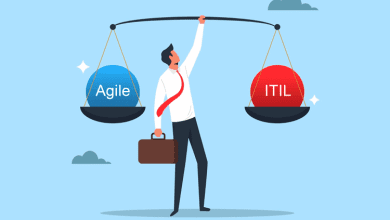Cloud-Based Billing: Breaking It Down for the Everyday User

In the fast-paced world of business, staying on top of financial transactions is crucial for success. As a business owner, you’re likely familiar with the challenges of managing accounts, billing, and accounting. The good news is that technology has evolved to simplify these tasks, making them more accessible and efficient for everyone. One of the key advancements in this regard is the advent of cloud-based billing and accounting software.
The Rise of Cloud-Based Solutions
Traditionally, managing accounts and billing required hefty investments in on-premise software, infrastructure, and dedicated IT support. However, with the rise of cloud-based solutions, the landscape has transformed significantly. Online accounting software and online billing software have become game-changers for businesses, offering a streamlined and accessible way to handle financial processes.
What Is Cloud-Based Billing Software?
Let’s break it down in simple terms. Cloud-based billing software is a digital solution that allows you to manage your billing and invoicing processes through the internet. Unlike traditional software that you install on your computer, cloud-based billing software operates on remote servers, accessible through a web browser. This means you can access your financial data anytime, anywhere, as long as you have an internet connection.
Benefits for Business Owners
1. Accessibility
One of the primary advantages of cloud-based billing software is its accessibility. As a business owner, you can log in from your office computer, home laptop, or even your mobile device to check, create, or send invoices. This flexibility is a game-changer for those constantly on the move.
2. Cost-Efficiency
Cloud-based solutions eliminate the need for expensive hardware and maintenance. You no longer have to worry about server upgrades or software installations. With a subscription-based model, you pay for what you use, making it a cost-effective choice for businesses of all sizes.
3. Collaboration Made Easy
In a traditional setting, collaboration on financial documents could be a logistical nightmare. With cloud-based billing software, you and your team can collaborate in real-time. Multiple users can access and work on the same document simultaneously, reducing delays and ensuring accuracy.
4. Automatic Updates
Keeping your software up to date is essential for security and performance. Cloud-based solutions handle updates automatically, ensuring that you always have access to the latest features and security patches without any manual intervention.
Cloud-Based Accounting Software: A Holistic Approach
While cloud-based billing software focuses on invoicing and financial transactions, cloud-based accounting software takes it a step further. It integrates various financial processes, offering a holistic approach to managing your business finances.
1. Financial Reporting
Cloud-based accounting software provides powerful reporting tools, giving you insights into your business’s financial health. Generate customized reports, analyze trends, and make informed decisions based on real-time data.
2. Scalability
As your business grows, so do your accounting needs. Cloud-based accounting software is scalable, meaning it can adapt to the changing size and complexity of your business. Whether you’re a small startup or an established enterprise, the software can evolve with you.
3. Security Measures
Security is a top concern for any business, especially when dealing with financial data. Cloud-based accounting software employs robust security measures, including data encryption and secure access controls, to protect your sensitive information.
Making the Switch
If you’re considering transitioning to cloud-based billing or accounting software, it’s essential to plan the migration carefully. Here are some steps to guide you through the process:
1. Assess Your Needs
Evaluate your business requirements and determine the features that are essential for your operations. Consider factors such as the number of users, integration with other tools, and reporting capabilities.
2. Choose the Right Software
There are numerous cloud-based billing and accounting software options available, each with its unique features. Take the time to research and choose a solution that aligns with your business goals and budget.
3. Data Migration
Moving your financial data to the cloud requires careful planning. Work closely with your chosen software provider to ensure a smooth transition. Back up your data and conduct thorough testing to avoid any disruptions.
4. Training and Support
Provide adequate training for your team to familiarize them with the new software. Most cloud-based solutions offer training resources and customer support to assist you during the transition and beyond.
Overcoming Common Concerns
As you contemplate the shift to cloud-based solutions, it’s natural to have concerns. Let’s address some common apprehensions and debunk a few myths to provide you with a clearer understanding.
Data Security
Myth: Storing data on the cloud is less secure than keeping it on a local server.
Reality: Cloud-based billing and accounting software providers prioritize security. They employ advanced encryption methods and adhere to strict compliance standards. In fact, many cloud solutions offer more robust security measures than the average small business can afford for on-premise systems.
Downtime and Reliability
Myth: Cloud services are prone to downtime, leading to business disruptions.
Reality: Reputable cloud service providers guarantee high uptime percentages. They have redundant systems and data centers to ensure continuity even in the face of unexpected outages. Your business can enjoy greater reliability by leveraging the infrastructure of established cloud providers.
Customization Limitations
Myth: Cloud-based software lacks customization options, forcing businesses to adapt to a one-size-fits-all approach.
Reality: Many cloud-based solutions offer a high degree of customization. You can often tailor the software to meet your specific business needs. Additionally, updates and new features are regularly rolled out based on user feedback, providing continuous improvements and adaptability.
Connectivity Concerns
Myth: Without a stable internet connection, using cloud-based software becomes impractical.
Reality: While a reliable internet connection is ideal, many cloud solutions offer offline functionalities. You can work on documents and invoices offline, and once you regain connectivity, the system syncs your changes automatically. This ensures you can stay productive even in locations with intermittent internet access.
Choosing the Right Cloud-Based Software
Selecting the right cloud-based billing or accounting software is a critical decision for your business. Here are some factors to consider during the evaluation process:
1. Features and Functionality
Identify the features that align with your business requirements. Look for software that covers invoicing, expense tracking, financial reporting, and any other specific needs your business may have.
2. Scalability
Consider the growth trajectory of your business. Choose a solution that can scale with your evolving needs, accommodating an increasing volume of transactions and users.
3. Integration Capabilities
Ensure that the software can seamlessly integrate with other tools your business uses, such as CRM systems, project management software, or e-commerce platforms. A well-integrated system streamlines your operations and minimizes manual data entry.
4. User-Friendly Interface
Opt for software that is user-friendly and intuitive. A straightforward interface reduces the learning curve for your team, promoting quicker adoption and efficient use.
5. Data Security and Compliance
Prioritize the security features of the software. Check for encryption standards, data backup protocols, and compliance certifications. This is especially crucial when dealing with sensitive financial information.
6. Customer Support and Training
Evaluate the level of customer support provided by the software vendor. Ensure that they offer training resources and responsive assistance to address any issues or concerns during the implementation phase and beyond.
Embracing the Future of Financial Management
In the dynamic landscape of modern business, agility and efficiency are paramount. Cloud-based billing and accounting software empower business owners to take control of their financial processes with ease and accessibility. As you embark on this journey, keep in mind that the transition is not just a technological shift; it’s a strategic move to enhance the overall productivity and competitiveness of your business.
Remember, the cloud is not just for large enterprises. Small and medium-sized businesses can benefit just as much, if not more, from the advantages offered by cloud-based solutions. By choosing the right software and embracing the change, you position your business for a more streamlined, efficient, and prosperous future. Cloud-based billing is not just a technological evolution; it’s a transformation in how businesses manage their finances, and by adopting it, you’re staying ahead in the ever-evolving world of business.
Also read – How Does Salesforce Sales Cloud Help Automate and Boost Your Business?






